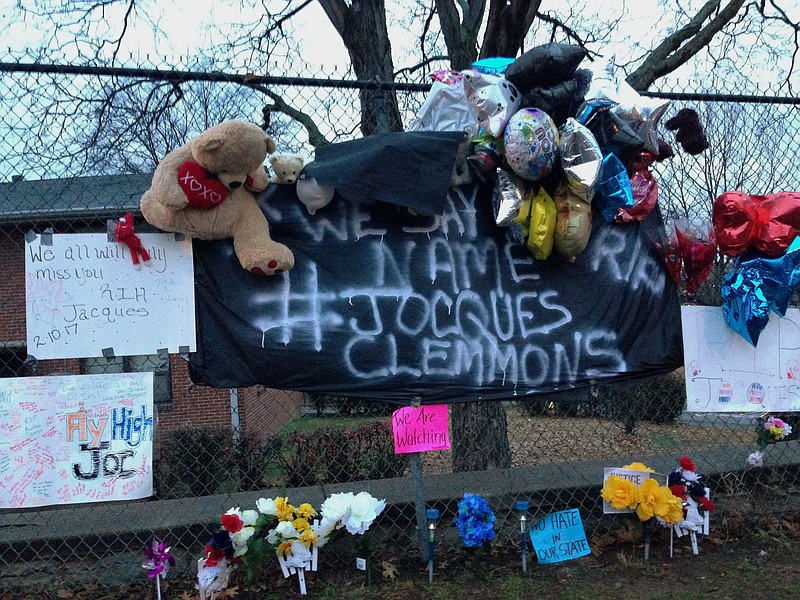NASHVILLE, Tenn. (AP) - Newly obtained surveillance video has caused Nashville police to revise their account of a traffic stop on Friday that ended with a white officer shooting and killing an armed African-American man.
Police say footage first made available Tuesday shows there was no initial physical confrontation between Jocques Scott Clemmons and Nashville Officer Josh Lippert right after Clemmons ran a stop sign and they both exited their cars.
Based on a different video, police first believed Clemmons "abruptly charged at Officer Lippert, making full contact with his body."
Instead, the latest video angle shows Clemmons ran toward Lippert to get around him, stopped short of the officer, and then turned around and ran in the opposite direction, police said.
In a follow pursuit by the officer, Clemmons, 31, refused orders to drop the loaded pistol before Lippert fired at him, police said.
The new video comes amid outcry from Clemmons' family and supporters questioning the police's claims and the officer's actions. On Tuesday evening, protesters marched behind Black Lives Matter banners from nearby the public housing development where the shooting occurred to downtown Nashville, chanting "Justice for Jocques."
"As part of the full and accountable investigation into this matter, it is important that the community know of this new development," Nashville Police Chief Steve Anderson said in a news release. "The investigation is active and progressing. We are engaging with the FBI. Citizens have my assurance that the investigation will be fair, objective and complete."
Police were initially depending on a surveillance tape from Friday that was filmed further away and from a different angle. That video "created the impression of contact" between the two men, police said.
One of the videos released by police appears to show that, after a scuffle, Clemmons was moving away with his back turned to Officer Lippert then Clemmons was shot. Clemmons appeared to be trying to get in between two parked cars. He was shot in the back and died at the hospital Friday.
Officer Lippert has been suspended 20 days over his five years as a Nashville officer. Some of those were in incidents where he used force, according to his personnel file.
Lippert used physical force to take a person out of a car during an October 2015 traffic stop, earning him an eight-day suspension, records show. Lippert's decision to use force "unnecessarily escalated the encounter when the motorist had indicated he was willing to voluntarily step from the car if a supervisor was present," a disciplinary report states.
In June 2013 outside a Nashville bar, Lippert punched in the face and pepper sprayed a drunk man who had begun fighting with him after Lippert decided to switch out the handcuffs on the man.
Lippert's "actions created the necessity to use force against an intoxicated subject," according to a disciplinary report that suspended him for three vacation days.
The shooting death of Clemmons has heightened calls from the NAACP and American Civil Liberties Union for quick action on implementing city plans to equip Nashville police with body cameras. Mayor Megan Barry plans to ask for $12 million for the cameras in the 2017-18 budget.
Additionally, ACLU of Tennessee is asking for the formation of "an independent civilian review board, with robust power to investigate and hold law enforcement accountable."
U.S. Attorney David Rivera has said his office will work with the FBI and the Civil Rights Division of the Department of Justice in monitoring the case.
Police are also looking to identify and interview another person who was in the passenger seat of the pulled-over car, but left during the incident.
